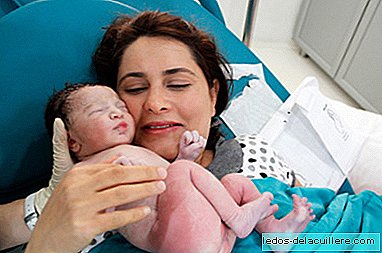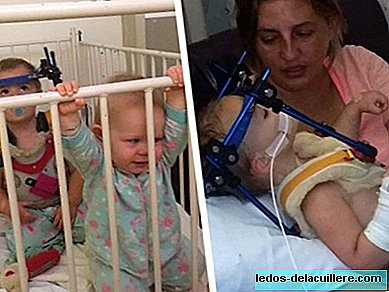
Depression is a disease that affects more than 300 million people in the world, according to information from the World Health Organization. In some cases, it appears during pregnancy and is also quite common during postpartum. Several studies have shown that suffering during pregnancy and early years of the baby, can have a negative impact on him.
Now, a new study has found that When the mother suffers from depression during and after pregnancy, the children's neurological development is negatively affected.
The study, published in the journal Depression & Anxiety, analyzed the possible relationship between depression symptoms during pregnancy and the first year of postpartum, with low neurological development in children.
To carry out this research, 2,231 mothers participated in a study about the prediction and prevention of preeclampsia and intrauterine growth restriction.
Every certain time during their pregnancy and postpartum, they filled out a format that consisted of a scale to measure and record the symptoms of depression, as well as a questionnaire in which developmental milestones were recorded in children, whose ages were between 1.9 and 5.7 years.
It was found that a higher mean of depressive symptoms and a relevant and consistent symptomatology during pregnancy, they could predict a lower level in evaluations of children's development, which included his gross and fine motor skills, communication, problem solving and social and personal skills.
For example, the children of mothers who had severe and chronic symptoms of depression during pregnancy were the ones with the greatest number of disadvantages in terms of neuronal development.
With these results, the researchers concluded that having symptoms of depression in pregnancy, during postpartum and in the early childhood of children, was associated with a poorer neurological development in children.
This research joins the list of studies that have proven that depression affects not only mothers, but their children, so It is important to continue working on the mental health care of women during pregnancy and postpartum.
Definitely health services need to continue to improve, so that they include periodic reviews of mothers' emotional health, and in this way, to be able to detect and treat postpartum depression in time.












